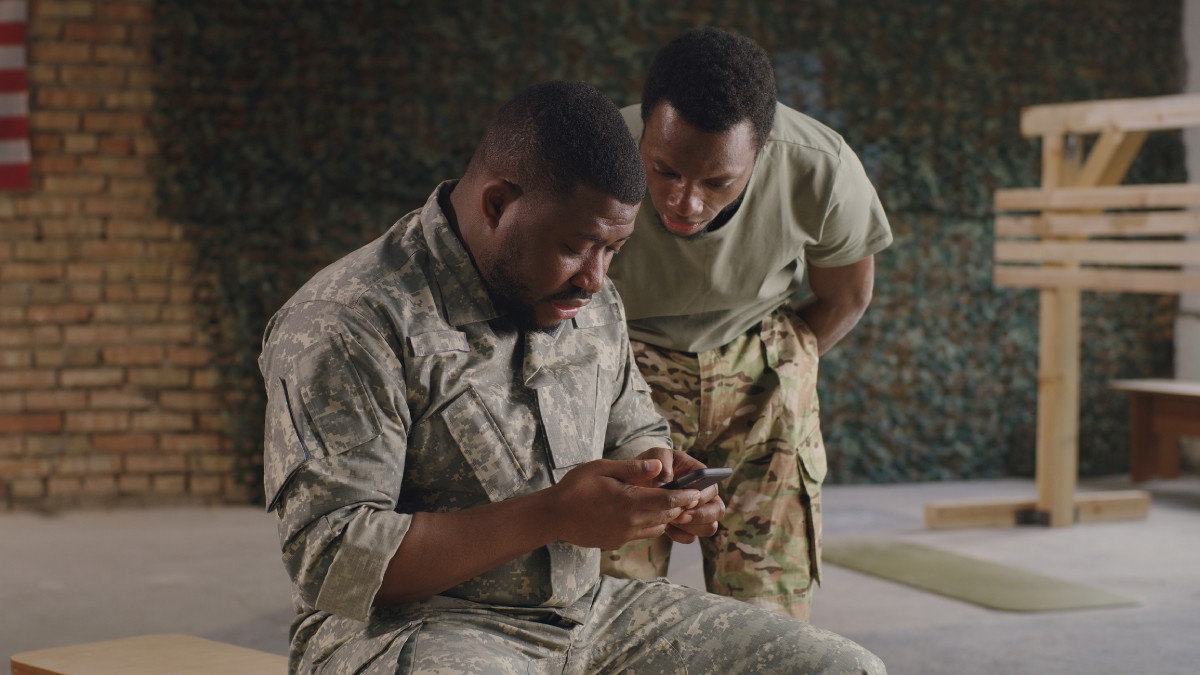
When a service member is under investigation for misconduct, they often focus on the immediate, face-to-face challenges they’ll face. But one of the most underestimated aspects of a strong defense lies in protecting your digital privacy.
Today, a single device can contain more personal information than we often realize, and that information can either serve to defend you or, in almost all cases, be used against you.
As an attorney who has defended countless service members, I can’t stress enough the importance of taking proactive steps to secure your devices—particularly your phone. Your phone holds an incredible amount of data, from text messages to metadata that tracks your location and communication history. Each digital detail is a potential piece of evidence, and it can carry weight whether it’s to your benefit or detriment.
Most people don’t think about the subtleties of data, like geolocation or message timestamps, but these can become significant during an investigation. For example, messages that reveal your location can verify (or conflict with) statements, and metadata can shed light on timelines and interactions. By securing your phone and other devices, you ensure that this evidence remains intact and under your control, allowing your defense attorney to use it strategically if needed.
One of the first steps to securing your phone is disabling facial recognition.
This feature may be convenient, but it can easily be exploited. All it takes is someone holding the phone up to your face to unlock it. Instead, set a secure PIN, preferably six digits or longer, that only you know and that cannot be easily guessed. This is a small but powerful step that limits unauthorized access to your data.
Beyond securing your phone, it’s also crucial to know your rights regarding searches and seizures. In a military setting, commands may feel emboldened to demand a service member’s phone, especially if they’re junior enlisted. This can put service members in a challenging position, as they’ve been trained to follow orders. But remember, military personnel still have rights against illegal searches and seizures.
If you’re asked to turn over your phone without a proper authorization or warrant, you are within your rights to decline. Military rank does not override constitutional protections. And if you’re unsure of how to handle this situation, contact me immediately. I can help you assess whether any order given is lawful and will guide you on how to protect your rights without creating additional conflicts.
Another crucial step is to secure your social media accounts.
This is not the time to keep up with the usual flow of personal posts. In fact, it’s best to shut down public visibility of all your social media profiles entirely. Law enforcement, attorneys for the other side, and even your accuser may attempt to scrutinize every post, comment, or like as potential evidence against you. Something as small as a check-in or a casual comment on a friend’s post can be misinterpreted or twisted into an element of the case.
In my practice, I’ve seen service members leave their social media profiles open and accessible, inadvertently giving prosecutors more evidence to work with. Even innocent posts, when viewed out of context, can paint an inaccurate picture. And for those in the heat of an investigation, social media can also become a tempting place to vent. But venting publicly is one of the quickest ways to sabotage your case. So shut it down, secure your settings, and eliminate any chance of your online presence creating additional issues.
To put it simply, digital privacy is not just a matter of convenience; it’s a critical element of a solid defense. The more control you have over your digital presence, the fewer opportunities there are for misunderstandings, incriminating interpretations, or breaches of confidentiality.
If you’re uncertain about how to lock down your devices or need support in managing your digital privacy during an investigation, reach out to a defense attorney with experience in military cases. Reach out to me, or someone like me who specializes in these types of cases.
Taking early steps to secure your digital life is an investment in protecting your future. Just as you wouldn’t leave physical evidence unsecured, you shouldn’t leave your digital evidence unprotected. With careful management, your devices and social media can remain assets rather than liabilities in the defense process.




